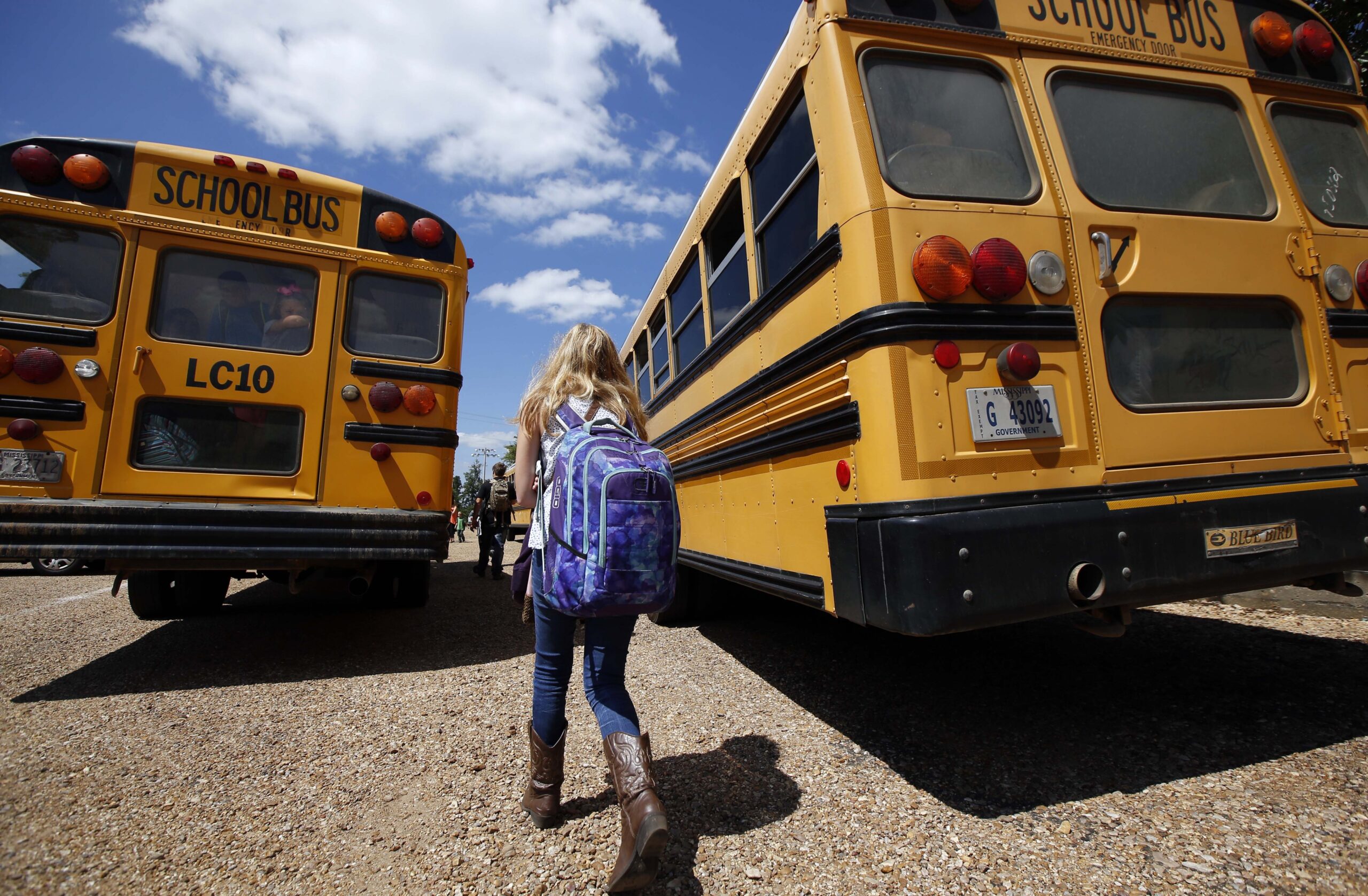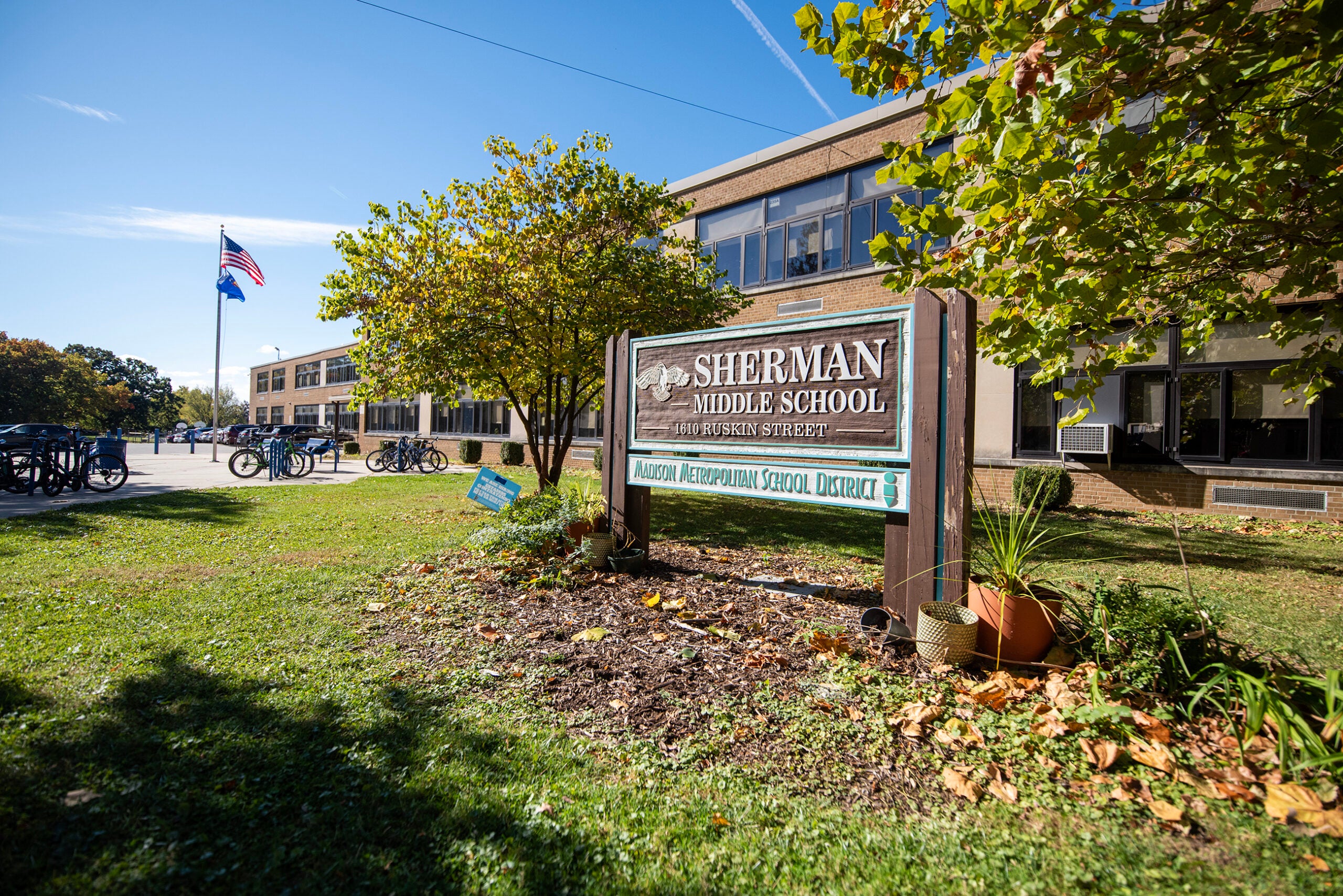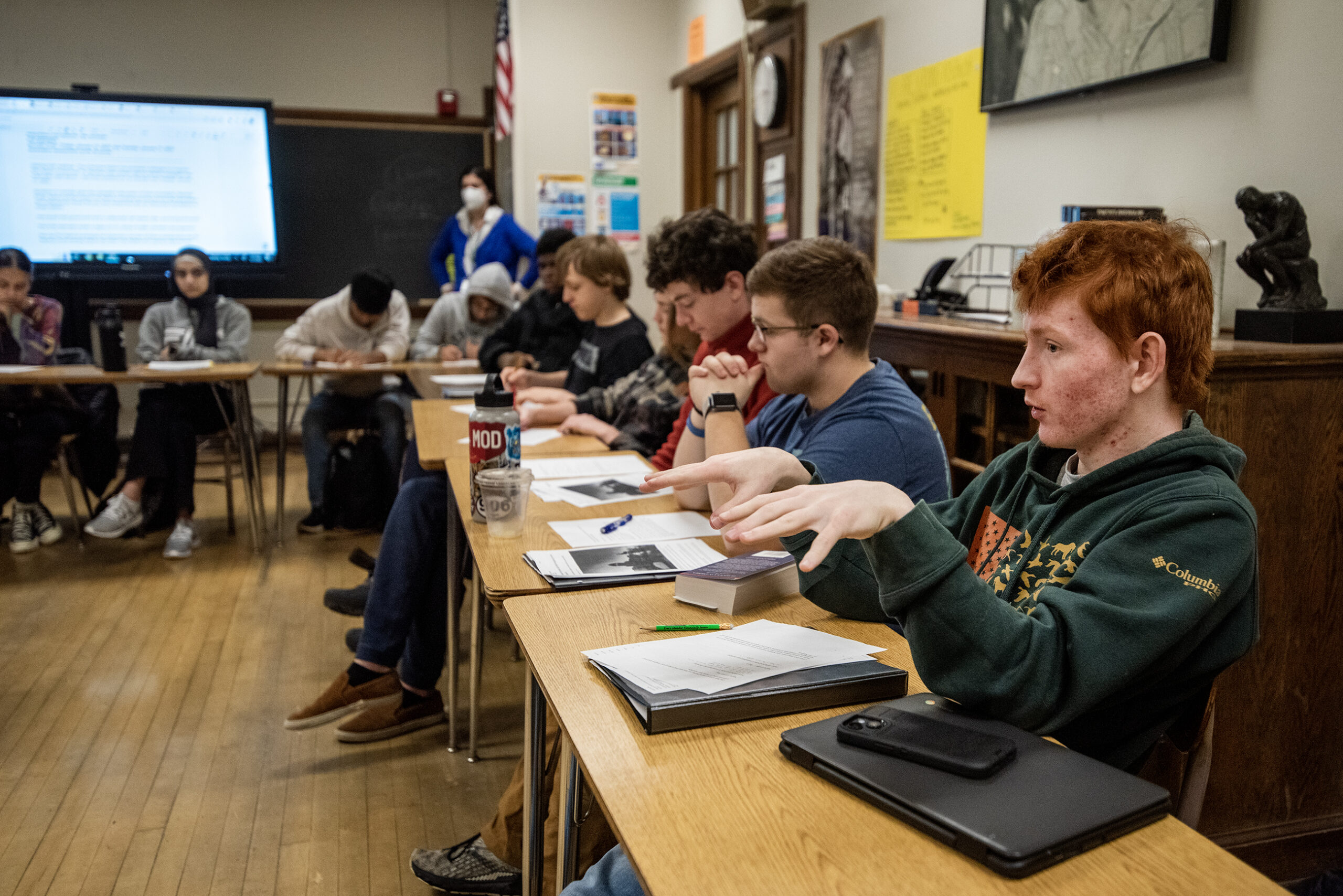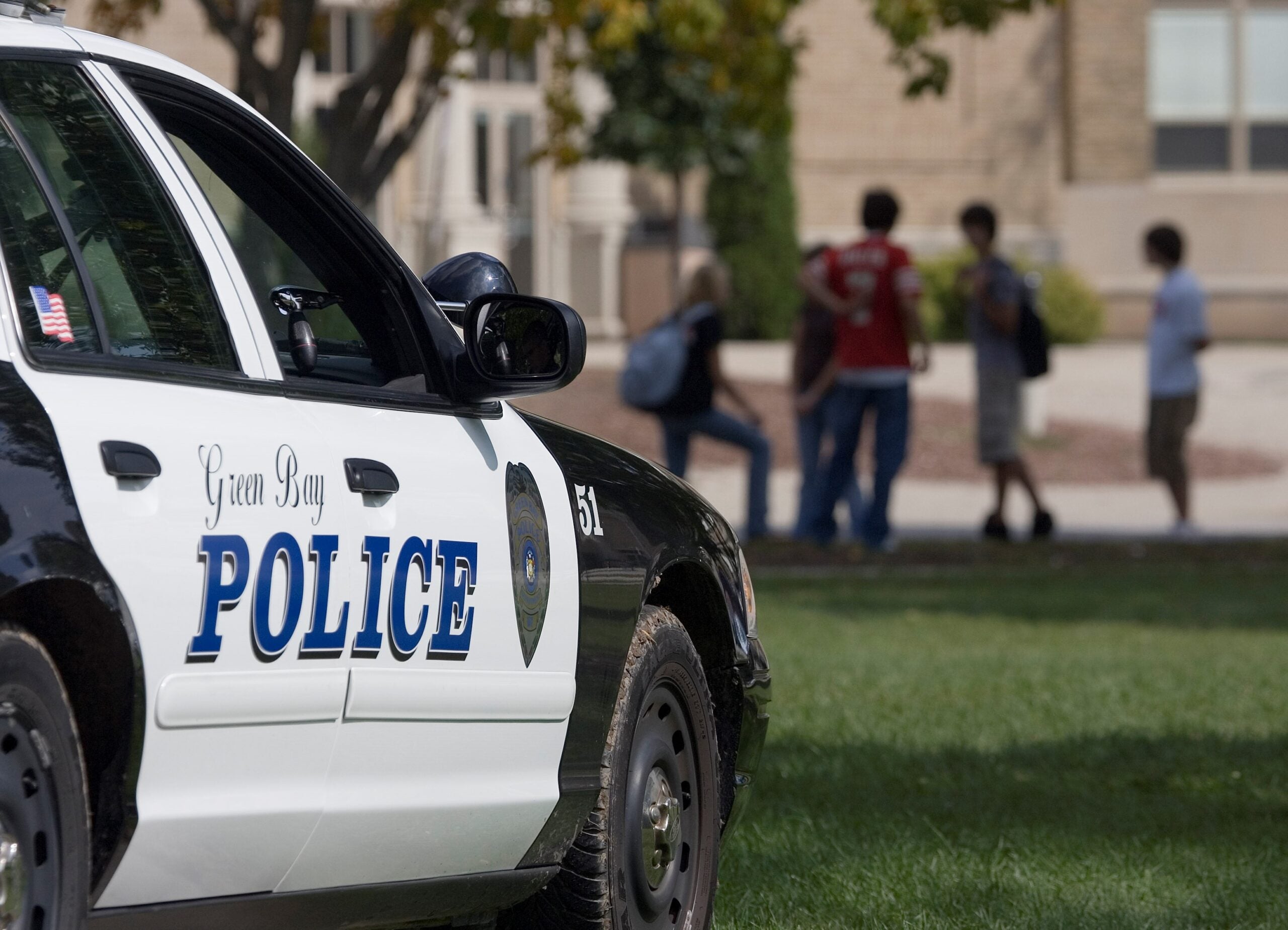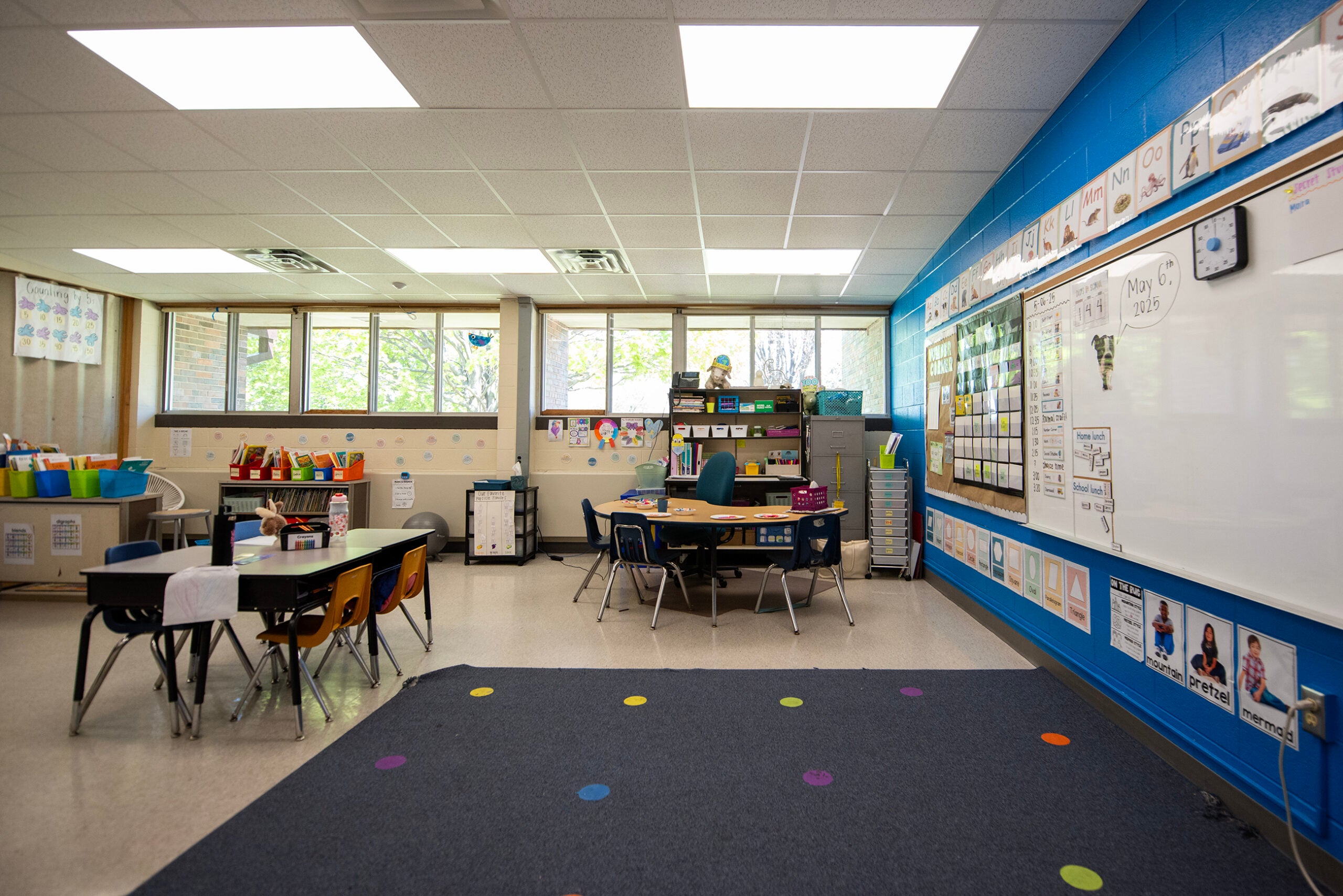Gov. Scott Walker says his approach to school safety will focus on making the buildings safe, much like how airport security was changed after the 9/11 terrorist attacks.
Walker spoke to The Associated Press after a closed-door meeting Wednesday with Senate Republicans to figure out which bills they will pass on their final day in session in two weeks.
Walker said he’s been negotiating with state lawmakers to come up with a plan to bolster school security and prevent firearms or other weapons getting into buildings.
News with a little more humanity
WPR’s “Wisconsin Today” newsletter keeps you connected to the state you love without feeling overwhelmed. No paywall. No agenda. No corporate filter.
Sen. Majority Leader Scott Fitzgerald, R-Juneau, said he’s working on a school safety proposal that would send an undetermined amount of general tax dollars to schools for improving the safety of school buildings and other facilities. Lawmakers have talked about giving schools money to spend on such things as locks, cameras and other safety features.
The Assembly approved making grants available to school to pay for armed guards. But Fitzgerald said that’s never been a focus of the Senate.
However, State Superintendent Tony Evers said those proposals wouldn’t go far enough. He’s asking for $50 million for prevention programs and mental health counselors.
“We need the resources to be ongoing and not only fix the buildings and make them more secure, but also making sure that we have the good technology in place and the good personnel in place and personnel costs are ongoing,” he said.
Senate Education Committee chairman Sen. Luther Olsen, R-Ripon, said he’d like the Legislature to spend roughly double Evers’ proposal on school safety.
The state superintendent has also asked the governor and lawmakers to return authority to schools who want to raise property taxes beyond state restrictions to improve safety. Schools were granted that authority in the 2009-11 budget, but it was eliminated in the following budget biennium.
“We want that revenue limit authority back again, and I think that’s a really important thing to make sure that we’re looking at things like controlling accesses and so on and so forth in the buildings, but, also making sure that we have the appropriate personnel in place,” he said.
Evers is calling for a special session to address school safety. In addition, he would like to see legislators take up gun control and address issues like waiting periods and private gun sales.
Amy Hasenberg, the governor’s spokeswoman, said in an email Wednesday to WPR that Walker’s school safety plan will be released before the next Senate floor session March 20.
“Gov. Walker has placed a focus on mental health services as he invested more money into mental health services than any governor in the last 25 years,” wrote Hasenberg. “School officials who attended his listening sessions across the state repeatedly raised concerns about mental health services in schools, so he made a significant investment in school social workers, collaboration for mental health services and screening and trauma informed care training for school staff.”
State funding for school safety makes sense, says Dan Rossmiller, director of government relations for the Wisconsin Association of School Boards.
Rossmiller said Evers’ school safety proposals go well beyond the issue of making schools more secure from threats of gun violence. He noted there appears to be tension among lawmakers between providing one-time funding to secure schools as opposed to the state superintendent’s proposal for ongoing funding of personnel.
“We want (funding) to be flexible enough that school districts can use the money for their greatest needs,” Rossmiller said.
He also noted each school district is different, especially in rural areas where they may be some distance from local law enforcement. He cited variation in the age and architecture of buildings in districts statewide.
“There isn’t just one solution to facilities’ needs,” he said. “In some cases, it’s going to be communications systems.”
Advocates for rural schools support Evers’ proposal to exceed levy limit restrictions for school safety improvements, said Kim Kaukl, executive director of the Wisconsin Rural Schools Alliance. He noted budgets for rural districts are often stretched thin, which may lead to difficult decisions between classroom resources and safety. Kaukl also agreed that state investment in mental health personnel is critical, especially for rural schools that struggle to retain staff.
“Anything we can do to improve helping students that are having mental health issues and helping have the qualified people to identify those issues would be really important,” he said.
In northwestern Wisconsin, the Ashland School District has benefited from similar funding streams. The district received a three-year grant to address mental health in the district several years ago. Ashland Schools Superintendent Keith Hilts said it’s had a significant impact on the district’s ability to address student needs.
“We’ve introduced suicide prevention programs and anti-bullying programs. We’re working with the restorative practices in terms of student behavior and how we react to it,” said Hilts. “Those things are all having a positive impact on the climate and behavior of students. In time, it will improve student achievement as well.”
Hilts said an ongoing funding stream for districts to address mental health issues would help administrators and school officials to better target areas of need and implement programs.
The state needs to strike a balance between securing buildings and preventing gun violence in schools, said Ken Kasinski, administrator for the CESA 12 that serves districts in six counties across northern Wisconsin.
“If someone wants to enter a building, they will find a way to get there,” he said. “It slows them down. It gives you a level of accountability, but the real crux of the issue comes down to mental health.”
Walker met with Republican state senators Wednesday as several of his legislative priorities, including Walker’s proposal to return $100 for every school-aged child living at home, creating an August sales tax holiday and closing the Lincoln Hills juvenile prison as part of a broader overhaul.
Wisconsin Public Radio, © Copyright 2025, Board of Regents of the University of Wisconsin System and Wisconsin Educational Communications Board.

